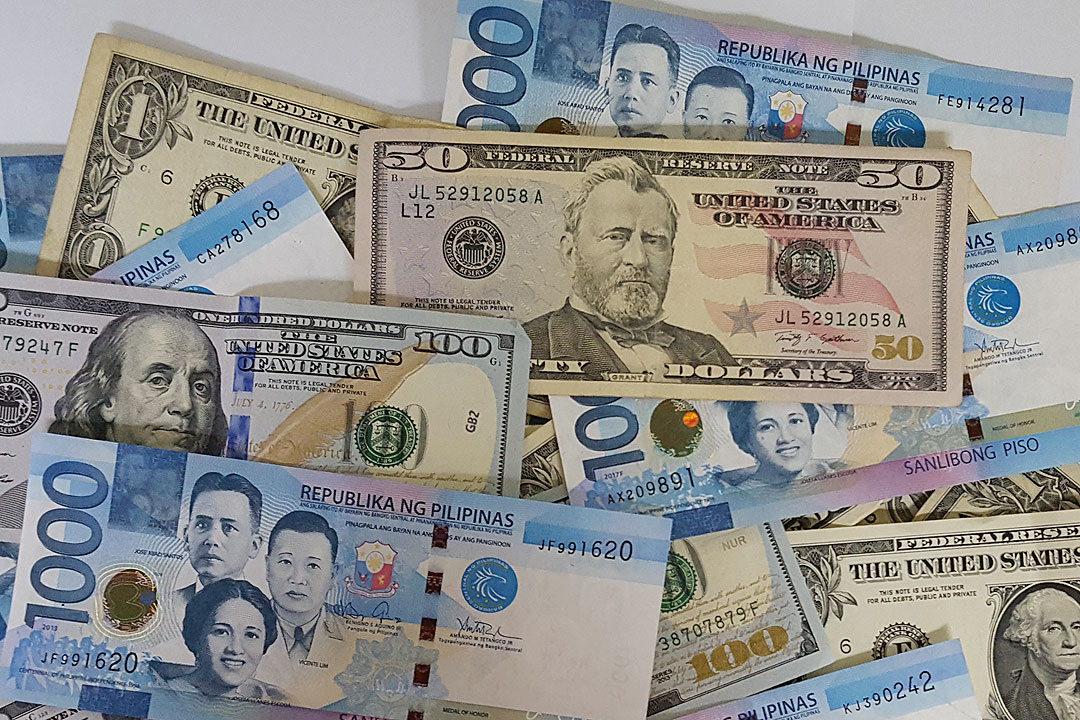Peso plunges to 8-month low on Japan policy bets

THE PESO plunged to more than an eight-month low on Monday to track the broad decline of Asian currencies against the dollar due to Japan’s surprise pick for its next prime minister.
The local unit closed at P58.35 versus the greenback, sliding by 47.5 centavos from its P57.875 finish on Friday, Bankers Association of the Philippines data showed.
This was the peso’s worst close in more than eight months or since its P58.66 close on Feb. 3.
The peso opened Monday’s session stronger at P58.05 versus the dollar. Its intraday best was at P58.04, while its worst showing was at P58.365 against the greenback.
Dollars exchanged went down to $1.19 billion on Monday from $1.62 billion on Friday.
The dollar was generally stronger on Monday as the yen fell due to the appointment of Japan’s new prime minister, which reduced expectations of a rate hike by the Bank of Japan, Rizal Commercial Banking Corp. Chief Economist Michael L. Ricafort said in a Viber message.
Politics dominated currency markets on Monday as the Japanese yen weakened by the most against the dollar in five months as Sanae Takaichi looked set to become Japan’s next prime minister, Reuters reported.
Ms. Takaichi is a former economic security and internal affairs minister with an expansionary fiscal agenda for the world’s fourth-largest economy, and won the ruling Liberal Democratic Party’s leadership election at the weekend.
Her victory caused traders to reduce bets that the Bank of Japan will hike interest rates this month and reassess their view on the direction of the yen.
The dollar rose 1.8% to 150.1 yen, its highest since August. If sustained, that would be its biggest daily gain since May 12.
In Asian trade, the euro hit 176.22 yen, its highest ever against the yen, but later pared those gains to be up 1.2% at 175.3 yen.
Long-dated Japanese government bonds sold off, with the 40-year JGB yield jumping 15.2 basis points to 3.538%. The yen swaps market on Monday now indicates a 41% likelihood of a rate hike by December, down from 68% on Friday.
“The peso weakened amid growing investor concerns on the lingering corruption probe in the Philippine Senate,” a trader said in an e-mail.
For Tuesday, the trader said the peso could rebound as likely faster September inflation could cause the Bangko Sentral ng Pilipinas to pause its easing cycle again at this week’s meeting following three straight cuts.
The trader sees the peso moving between P58.20 and P58.45 per dollar on Tuesday, while Mr. Ricafort expects it to range from P58.20 to P58.50. — A.M.C. Sy with Reuters



